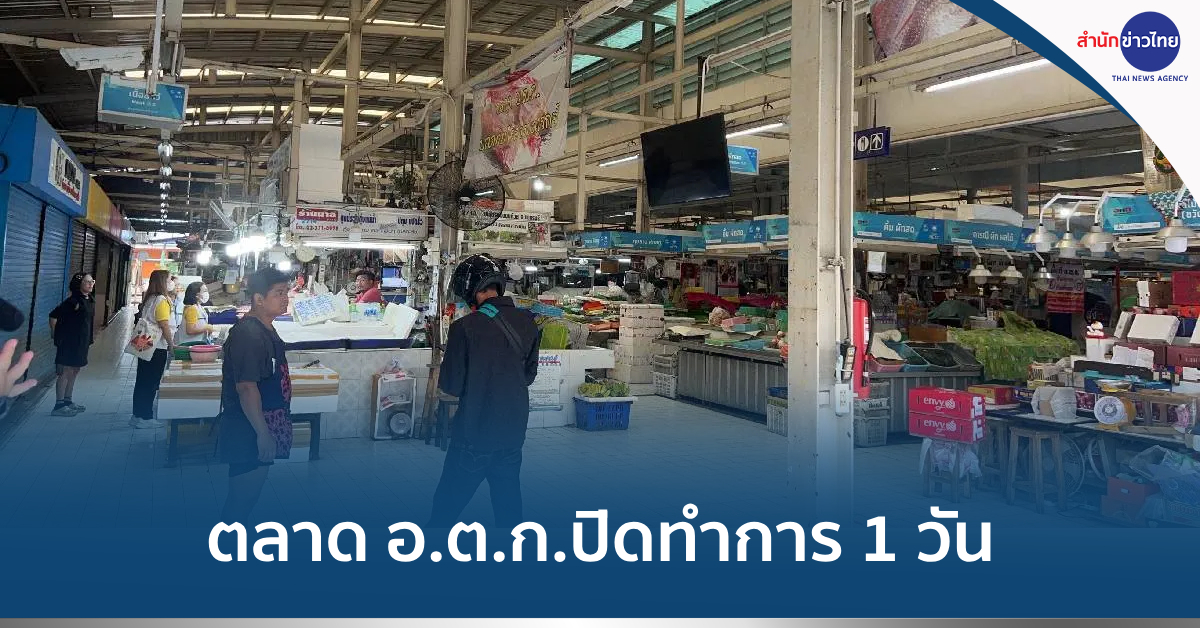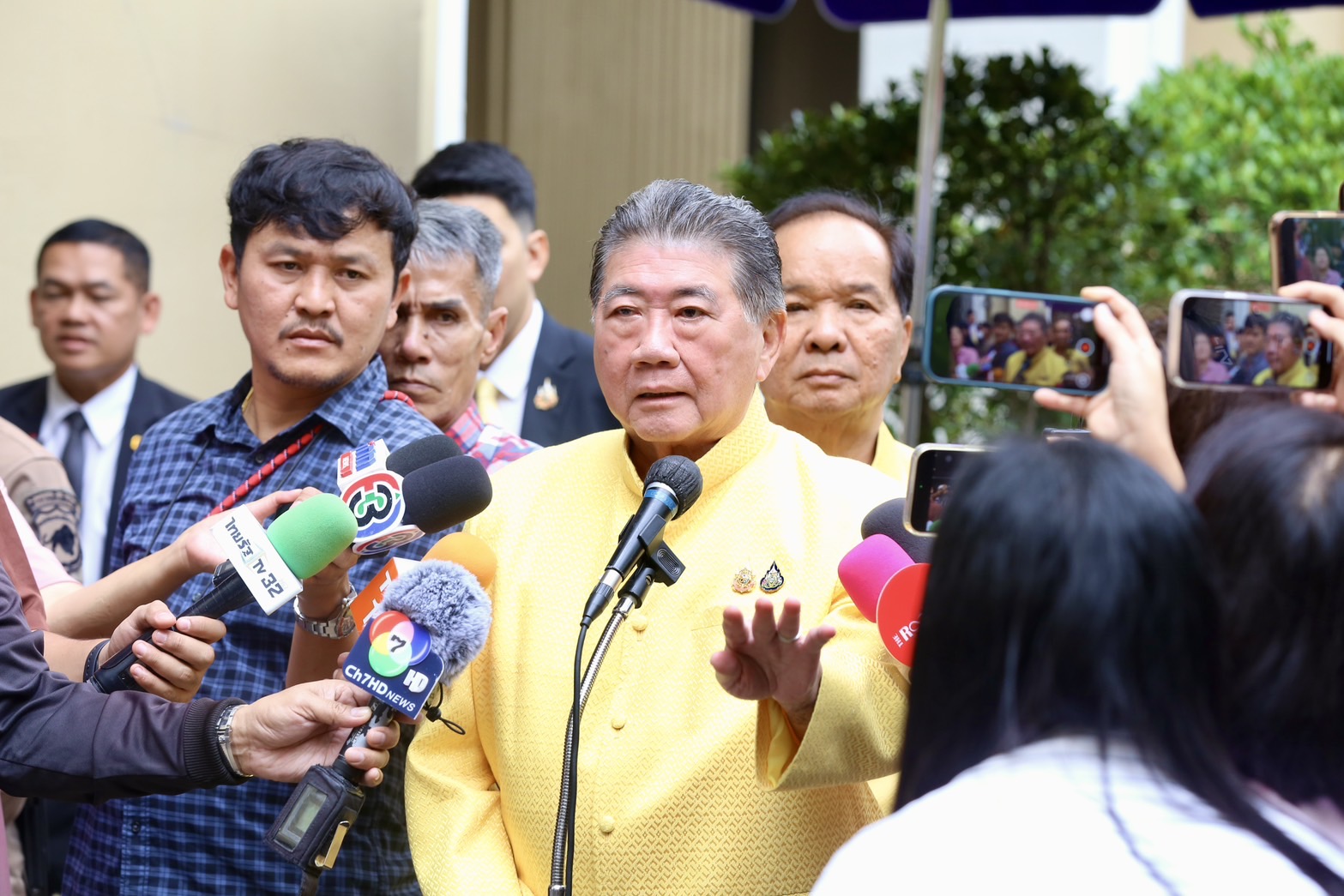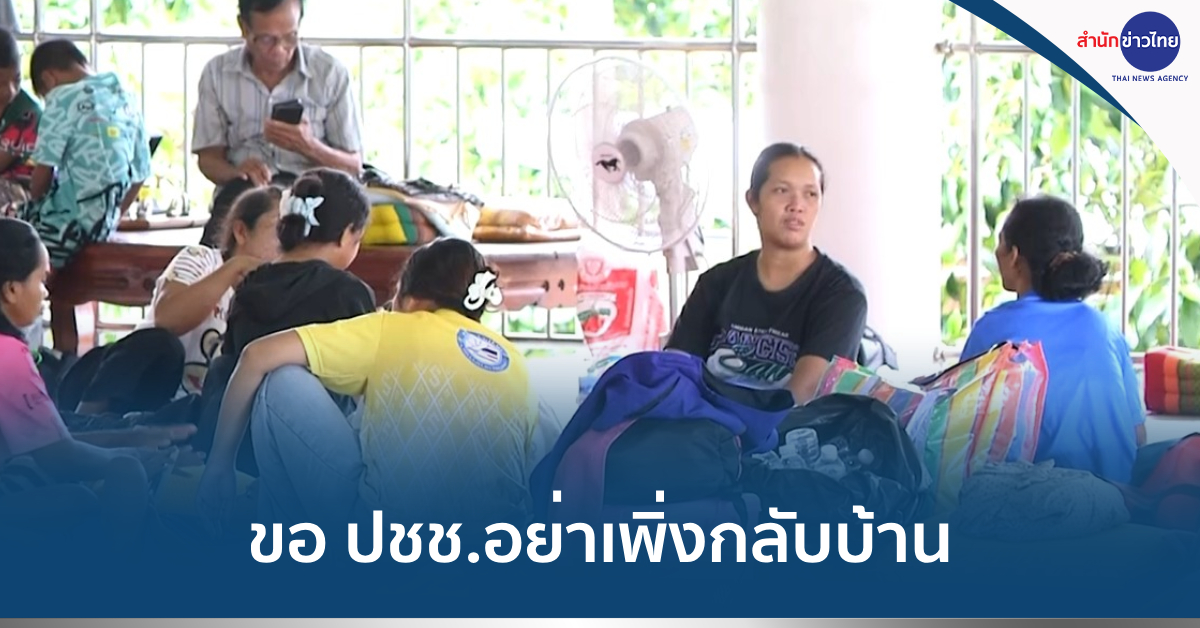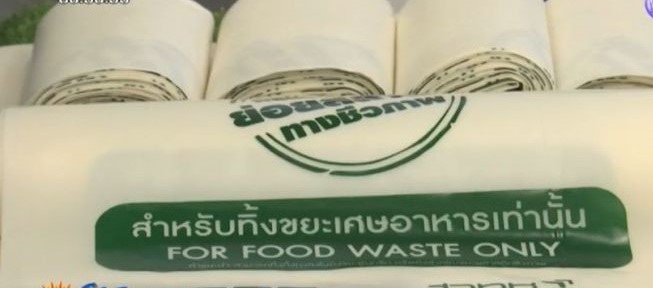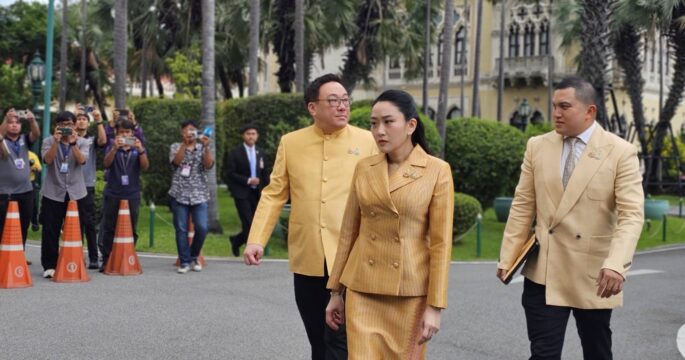Bangkok, Dec 10 (TNA) – The Ministry of Higher Education, Science, Research and Innovation and the private sector is producing biodegradable plastic bags for food leftovers. The bags are made from tapioca in accordance with the concept of bio, circular and green (BCG) economy.
Suvit Maesincee, Minister of Higher Education, Science, Research and Innovation, and Narong Sirilertworakul, president of the National Science and Technology Development Agency, inspected the production of biodegradable plastic with tapioca at SMS Corporation. The company jointly develops biodegradable plastic with NSTDA’s National Metal and Materials Technology Center. Thantawan Industry Plc takes part in the development with its blown film extrusion process.
Mr Suvit said that biodegradable plastic bags for food leftovers were among prototype products reflecting direction towards BCG economy and the development would also help cassava growers.
Tapioca was turned into Tapioplast plastic pellets that could be used to make biodegradable plastic products for environmental conservation, he said.
At present, bioplastic forms only 1% of all plastic products in use. The proportion is small due to its high cost. The use of tapioca reduces the cost by as much as 20% and shortens degradation time from six to three months. Bioplastic can be a raw material for the production of bags containing food leftovers and other products at environment-friendly hotels. (TNA)


